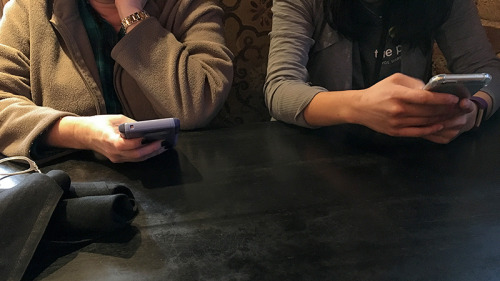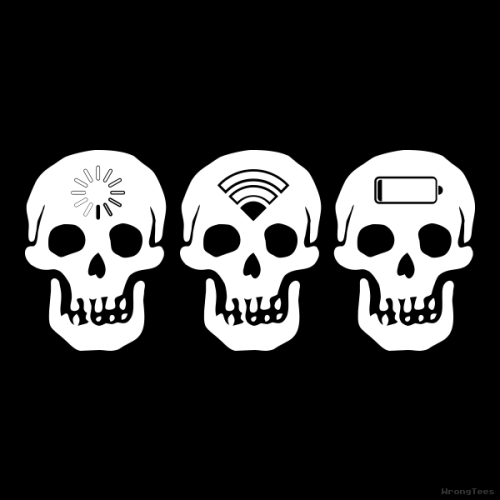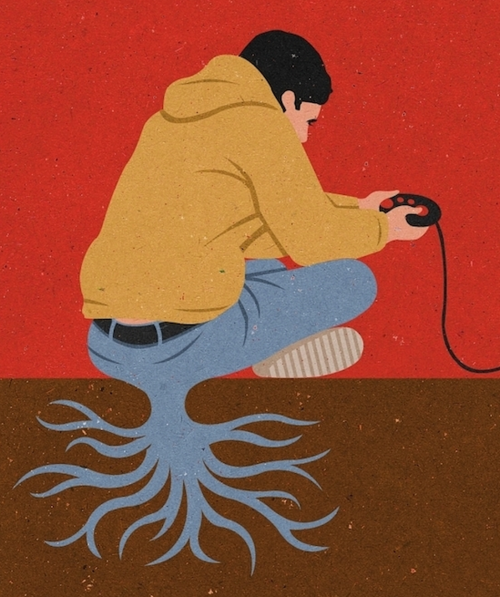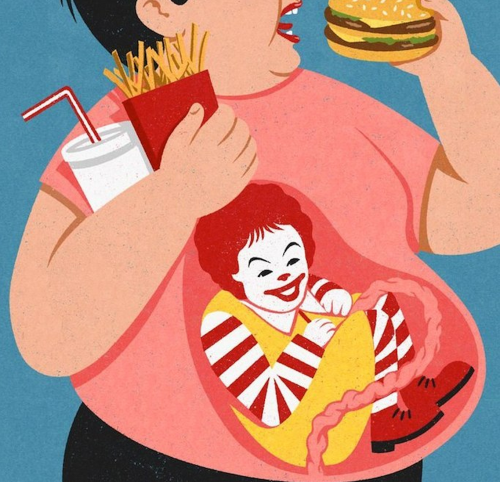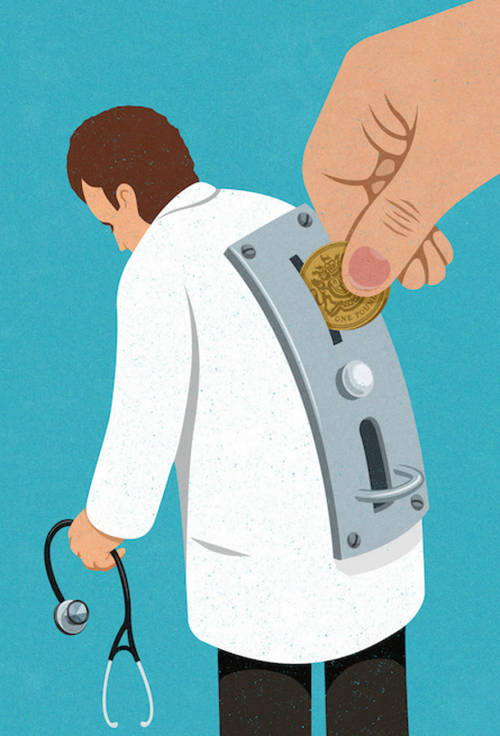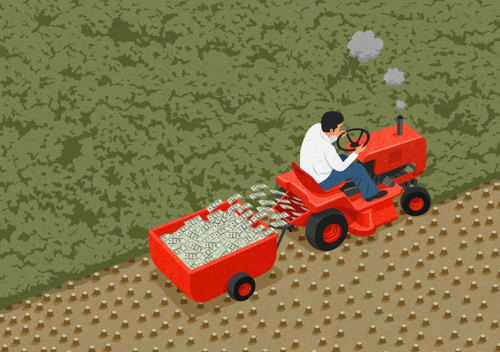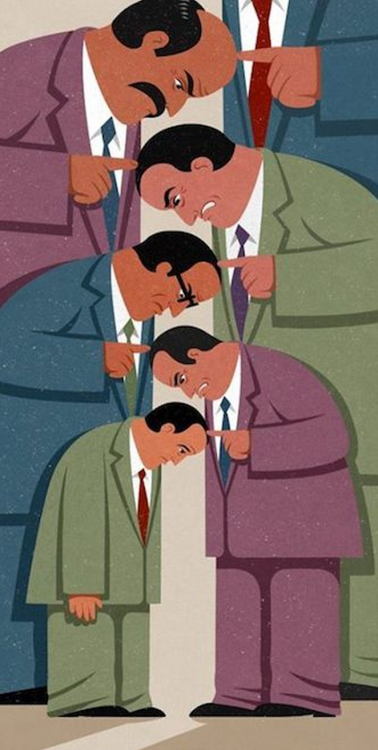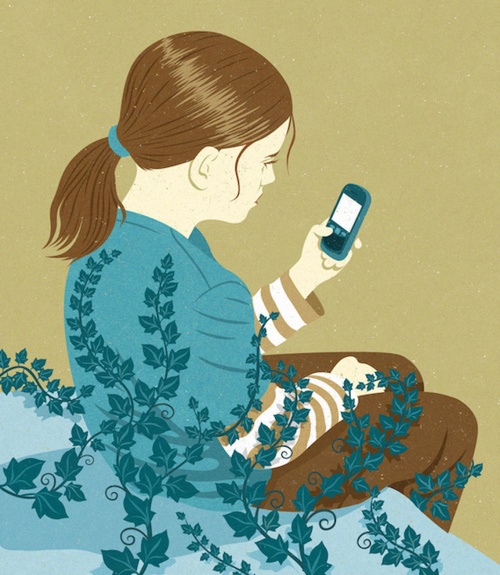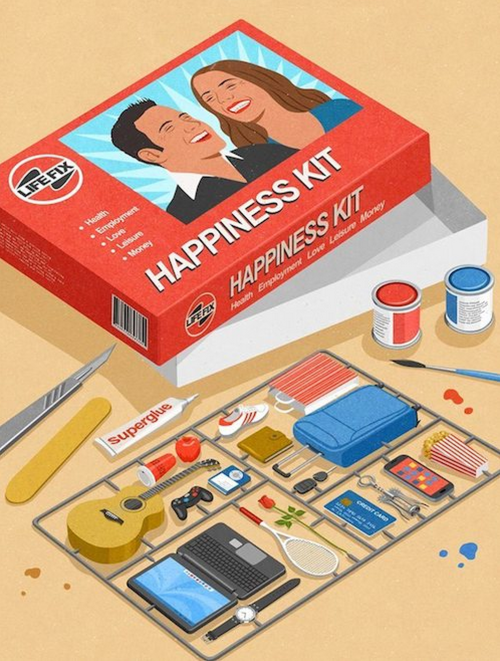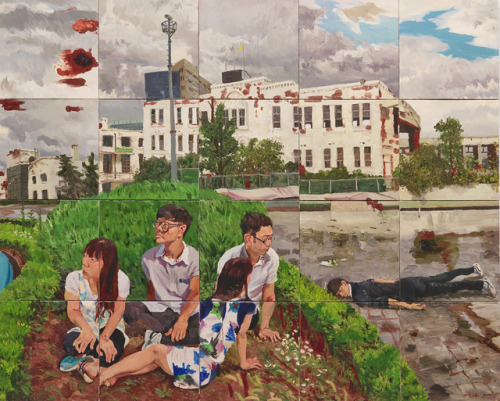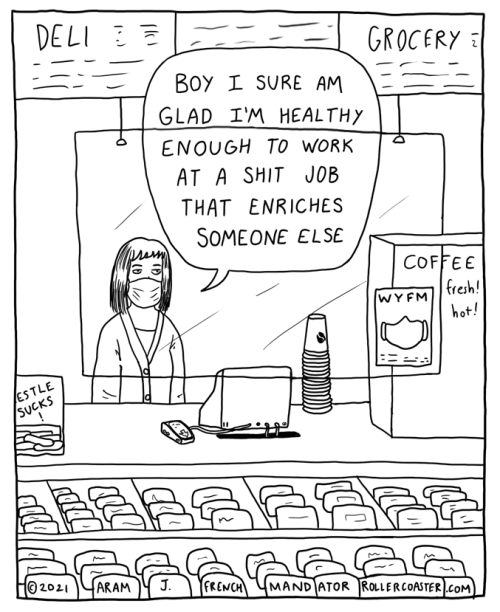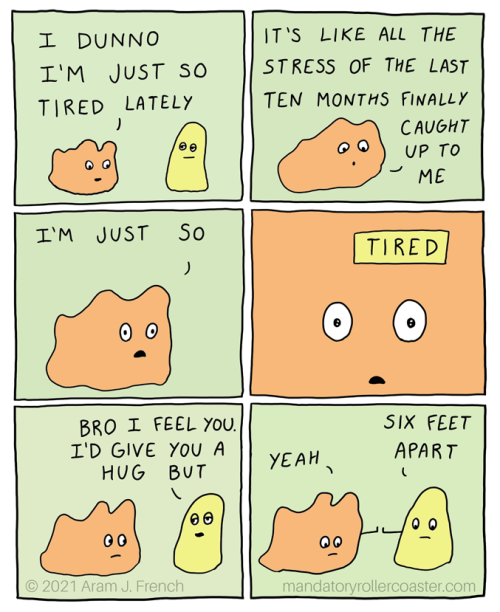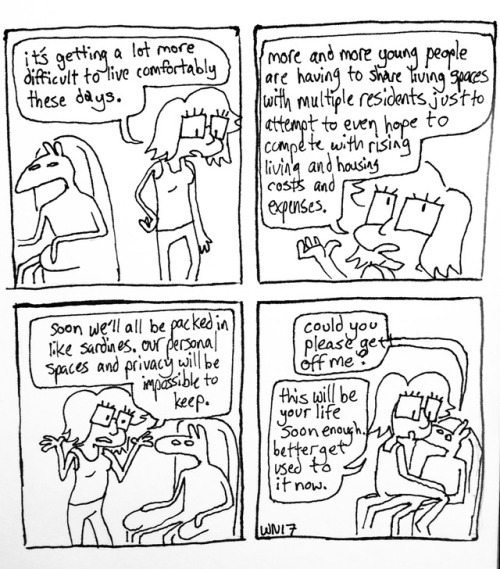#modern life
Lunch with co-workers (in the before-times).
Future historians will mark the early 21st century as the moment when people stopped talking to each other.
Post link
There’s nothing to fear but fear itself. And weak signal.
Shirt of the day, $10 at WrongTees. http://bit.ly/weak-fear
Post link
The paradox of our time in history is that we have taller buildings but shorter tempers, wider freeways, but narrower viewpoints.
We spend more, but have less, we buy more, but enjoy less.
We have bigger houses and smaller families, more conveniences, but less time.
We have more degrees but less sense, more knowledge, but less judgment, more experts, yet more problems, more medicine, but less wellness.
We drink too much, smoke too much, spend too recklessly, laugh too little, drive too fast, get too angry, stay up too late, get up too tired, read too little, watch TV too much, and pray too seldom.
We have multiplied our possessions, but reduced our values. We talk too much, love too seldom, and hate too often.
We’ve learned how to make a living, but not a life.
We’ve added years to life not life to years.
We’ve been all the way to the moon and back, but have trouble crossing the street to meet a new neighbor.
We conquered outer space but not inner space.
We’ve done larger things, but not better things.
We’ve cleaned up the air, but polluted the soul.
We’ve conquered the atom, but not our prejudice.
We write more, but learn less.
We plan more, but accomplish less.
We’ve learned to rush, but not to wait.
We build more computers to hold more information, to produce more copies than ever, but we communicate less and less.
These are the times of fast foods and slow digestion, big men and small character, steep profits and shallow relationships.
These are the days of two incomes but more divorce, fancier houses, but broken homes.
These are days of quick trips, disposable diapers, throwaway morality, one night stands, overweight bodies, and pills that do everything from cheer, to quiet, to kill.
It is a time when there is much in the showroom window and nothing in the stockroom.
A time when technology can bring this letter to you, and a time when you can choose either to share this insight, or to just hit delete.
Remember, spend some time with your loved ones, because they are not going to be around forever.
Remember, say a kind word to someone who looks up to you in awe, because that little person soon will grow up and leave your side.
Remember, to give a warm hug to the one next to you, because that is the only treasure you can give with your heart and it doesn’t cost a cent.
Remember, to say, I love you to your partner and your loved ones, but most of all mean it.
A kiss and an embrace will mend hurt when it comes from deep inside of you.
Remember to hold hands and cherish the moment for someday that person will not be there again.
Give time to love, give time to speak, and give time to share the precious thoughts in your mind.
Life is not measured by the number of breaths we take, but by the moments that take our breath away.
Nearly a century ago, in 1925 to be precise, the Austrian writer Stefan Zweig wrote an article for a Berlin newspaper titled “Making the World Uniform.” It began:
, : . , .
I know what Zweig meant. In the days when I traveled a great deal, often to supposedly remote places, my ambition was not to reach somewhere no human foot had trodden, but where Coca-Cola or Nescafé was not on sale. This was no easy matter, and I hear from time to time that even the peak of Mount Everest is now littered.
Zweig attributed the extinction of national and cultural differences in Europe to the rapid Americanization of the continent after the First World War: Perhaps Midwesternization, at least as far as aesthetics were concerned, would have been a better term for it. The domination of American fashions, in clothes, music, literature, architecture, was complete, according to Zweig. Europe has become a cultural colony of the United States, and it welcomed its own subjugation, insofar as such colonization brought material comfort and required meager intellectual effort of citizens.
“It is tempting to suppose that there is increasing uniformity in the world. But it depends on which end of the telescope you look down.”
American or not, mass amusements now prevailed over more refined aristocratic or upper-middle-class ones so dear to Zweig. Football (soccer, not the American variety) became the measure of all things. Zweig’s theory was that the American civilization that conduced to material comfort and prosperity was so boring that it provoked, by reaction, sensation-seeking:
It is tempting, then, to suppose that there is increasing uniformity in the world. But as with so many things, it depends on which end of the telescope you look down.
When I see young people en masse, I think that they are all the same: They dress the same, their tastes are the same, their interests are the same, etc. And yet, when I speak to them individually, I find that there is the same irreducible individuality to each person. Human beings by their very nature are privileged, or condemned, to be unique.
We see the end-of-the-telescope phenomenon in Shakespeare. When he depicts the lower orders of society as a collective, he depicts them most unflatteringly; they are stupid, unthinking, brutish, and fickle. But when he depicts them as individuals, he has the utmost sympathy for them…
At the end of his article, Zweig tells all his readers who feel as he does that they cannot defeat modern trends, and therefore the best thing for them to do is to retire into a kind of inner immigration, cultivating their own interests quietly without stridently or uselessly condemning what in fact cannot be changed.
- Theodore Dalrymple
Powerful political and satirical art by Pawel Kuczynski










Emojis you didn’t know existed pt 1
For My Friends, in Reply to a Question
Safia Elhillo
after David Ignatow
I’m okay. And, of course, I’m not,
but I go through the motions. I wake up
to the alarm’s howl, even when the word
in my body is no. I dress in livid colors.
I blacken the hairs of each eyebrow. I bake
& braise & pickle. I write & read & lose
hours to the blur of the television. I sit
for hours in the bath, my skin puckering.
I don’t know if I’ll ever go home again.
I don’t know who I’ve seen for the last time.
The Arabic comes back to me in streaks
of paint, verb forms & vocabularies
I may never again have occasion to use.
My days smudge into one another & it’s not
that I am afraid. It’s as if I am watching it
all happen below, & I am somewhere above
the room, wondering if the rice is burning.
I am somewhere above the room, watching
my new aches, watching the news as if
I am reading it in a novel. I look up
the names of people I knew in childhood,
learn their new & angular faces, their
faraway lives. My grandfather pixelates
into a smile & I work my creaking muscles
to replicate it, I do not ask if we will ever
meet again, I do not ask him to read to me,
or for anything that will make me long.
I dull it with sugar & oil, with cooking shows,
with sleep. I sleep twelve hours each night
& in my dreams I am fleeing a war, in my dreams
I am touching the faces of my friends, we are
each one of us touching, & even in the dream
we are afraid.
==
Today in…
2020:The Conditional, Ada Limón
2019:Dorothy Wordsworth, Jennifer Chang
2018:A Small Needful Fact, Ross Gay
2017:What We Need, David Budbill
2016:Husky Boys’ Dickies, Jill McDonough
2015:Why Some Girls Love Horses, Paisley Rekdal
2014:The Fox, Faith Shearin
2013:You Can’t Have It All, Barbara Ras
2012:Road Trip, Kurt Brown
2011:Onset, Kim Addonizio
2010:February, Margaret Atwood
2009:Domestic, Carl Phillips
2008:A Birthday, W.S. Merwin
2007:Words for Love, Ted Berrigan
2006:At the Trial of Hamlet, Chicago, 1994, Sherman Alexie
2005:The Waking, Theodore Roethke
Anxiety

Hello. This is a comic I drew last year, but am posting this year. Happy 2022! Lets, you know, hope things get better.

Right?



